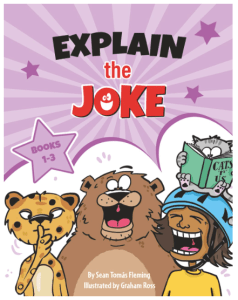Here is some good news that I would like to share: Explain the Joke was published by D C Canada Education Publishing.
I began explaining jokes to my 4th grade students in 2013. They were learning English and did not understand the jokes that other students were telling. The explanations developed into a blog, and the blog developed into the book. Working with DC Canada publishers was a wonderful experience, and publishing the book is a dream come true.
While the book was written for English language learners, it works for anyone who would like to better understand the multiple layers of these jokes in English.
Of course, I would encourage you to buy a copy, and then let me know what you think. Thanks for reading!




 October 4th is the day of St. Francis of Assisi, the patron saint of animals and ecology. People the world over admire St. Francis for his simplicity and humility, along with his dedication to peace and the natural world. Yes, the world would be a better place with more focus on of all of those virtues: simplicity, humility, peace, and ecology. (The picture to the left is of the town of Assisi in Italy.)
October 4th is the day of St. Francis of Assisi, the patron saint of animals and ecology. People the world over admire St. Francis for his simplicity and humility, along with his dedication to peace and the natural world. Yes, the world would be a better place with more focus on of all of those virtues: simplicity, humility, peace, and ecology. (The picture to the left is of the town of Assisi in Italy.)
